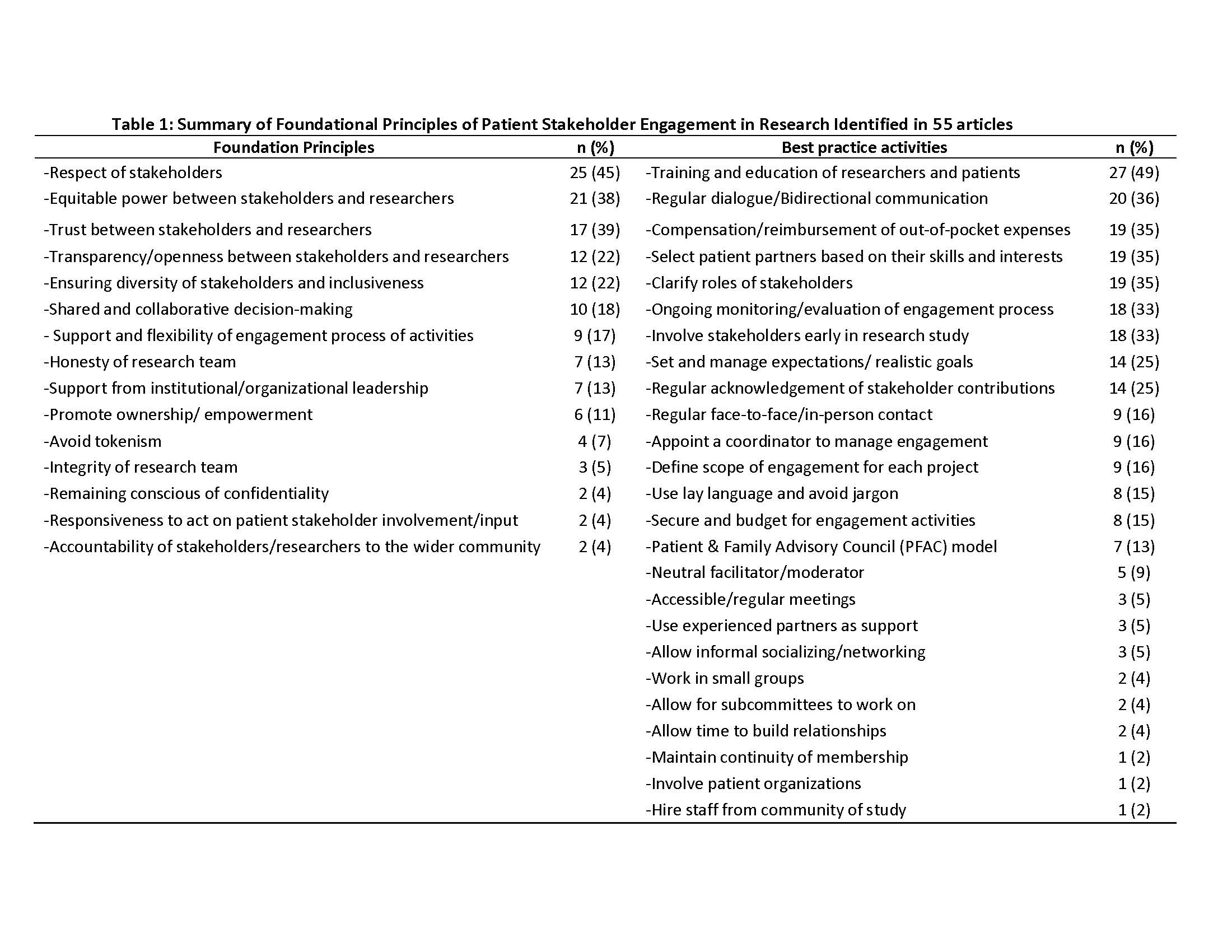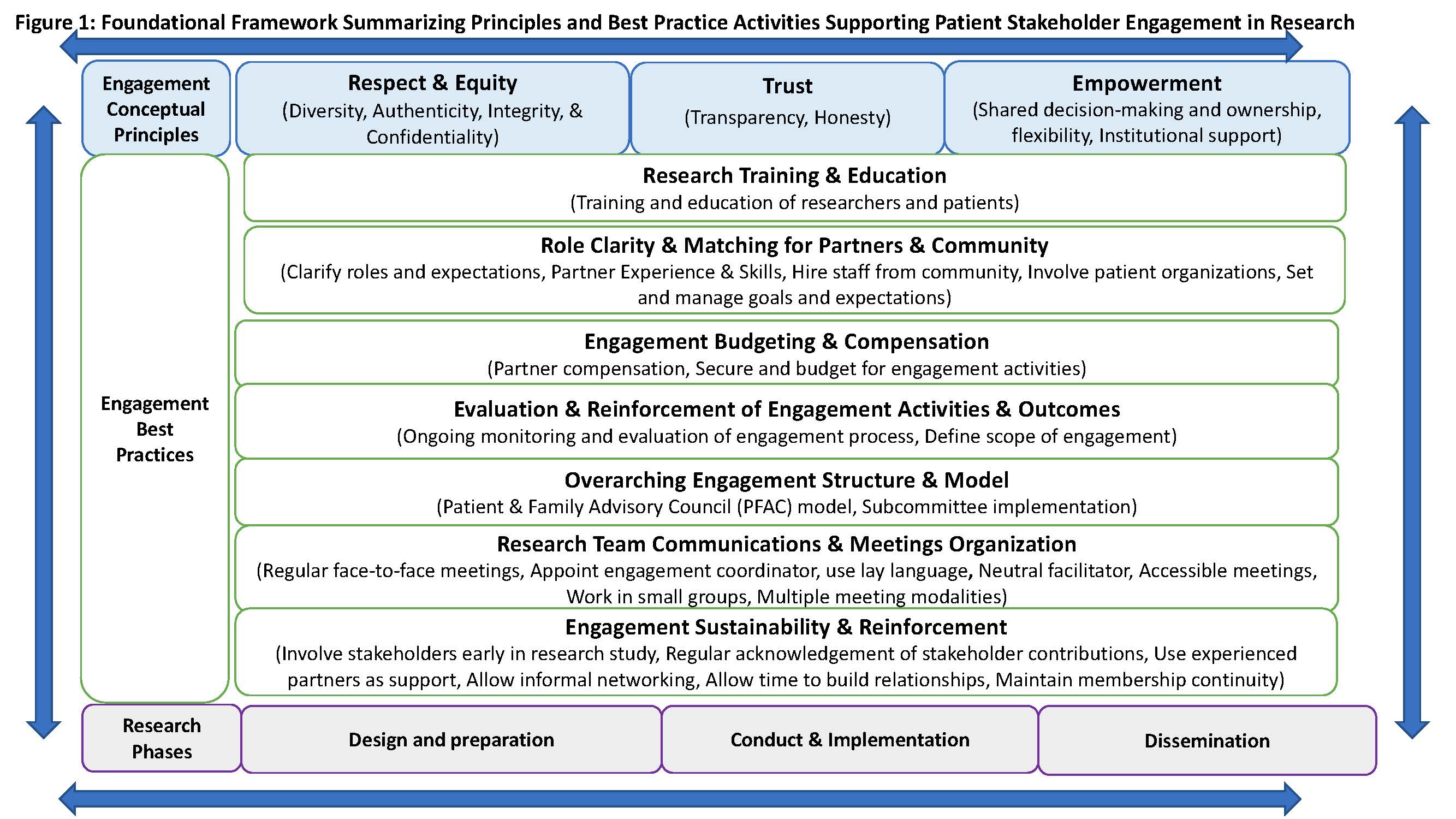Background: Health research is rapidly evolving to include patient stakeholders (patients, families and caregivers) as active members of research teams. The proliferation of published frameworks describing the conceptual foundations underlying this engagement, and strategies detailing best practice activities to support this process has led to a diffusion of information. Therefore, the aims of this study are to identify, quantify and summarize 1) the conceptual foundational principles of patient stakeholder engagement in research and 2) best practice activities to support these efforts.
Methods: We conducted a systematic review of the literature supplemented with review of the gray literature to create a narrative review addressing the aims of this study. We first accessed a publicly available repository of systematically identified literature of English-language articles from PubMED/MEDLINE related to patient stakeholder engagement in research. Our second search strategy involved accessing the grey literature reports (e.g. Google Scholar). Two reviewers independently screened articles to determine their relevance. The contents of relevant articles were then reviewed, and data abstracted – specifically domains that were reported as foundational principles of patient stakeholder engagement in research and best activities that support the operationalization of engagement.
Results: We identified 990 potentially relevant articles and reports of which 935 (94.4%) were excluded and 55 (5.5%) deemed relevant. The most commonly reported foundational principles (see Table 1) were “respect” (n=25, 45%) and “equitable power between all team members” (n=21, 38%). Creating “trust between patient stakeholders and researchers” was described in 17 (31%) articles. Twenty-seven (49%) articles emphasized the best practice (see Table 1) of providing training and education for both patient stakeholder and researchers. Providing financial compensation for patient stakeholders’ time and expertise was noted in 19 (35%) articles. Nineteen articles (35%) emphasized regular, bidirectional dialogue between patient partners and researchers as important for successful engagement. An overarching foundational framework summarizing key findings is shown in Figure 2.
Conclusions: Engaging patient stakeholders in research as partners presents an opportunity to design, implement and disseminate patient centered research. Our review creates an overarching foundational framework to facilitate authentic and sustainable partnerships between patient stakeholders and researchers.


